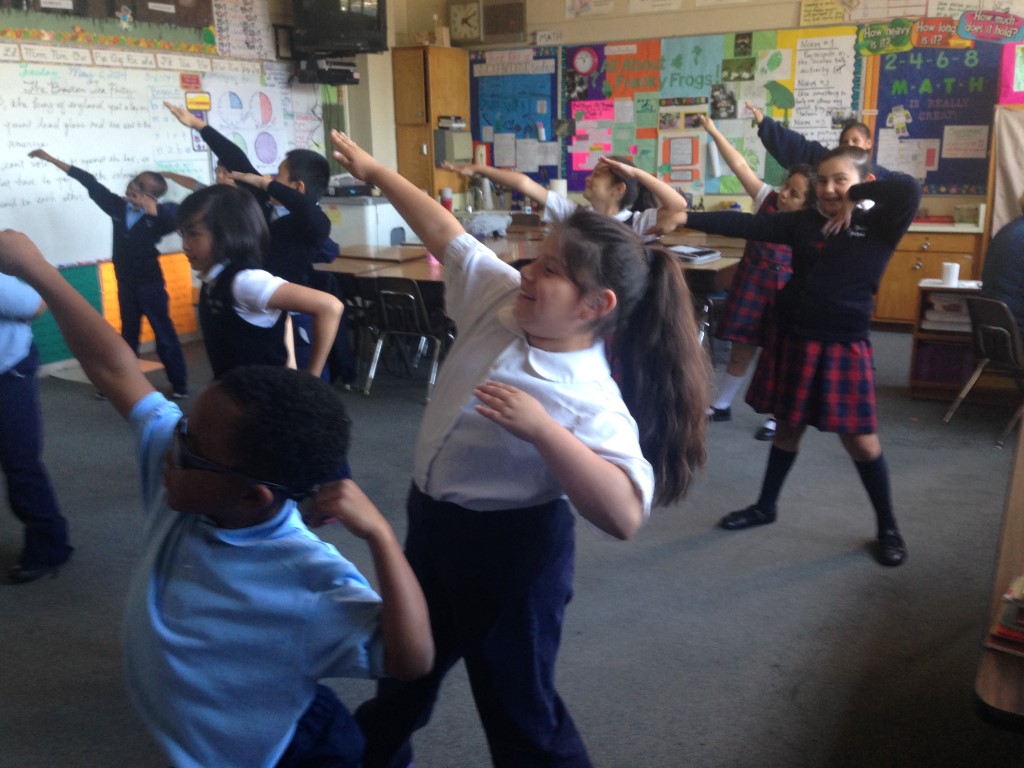 There is an adage that goes like this- patience is a virtue. My mother always told me this as a child, because I had the tendency to rush things, or to insist that things were done when I wanted them done. "Patience is a virtue," those words would return to me when I asked for the hundredth time, "well, when is it going to be done? When will it happen?" Whatever it was, I wanted it, or I wanted it to happen much sooner rather than later. But I became a teacher...
There is an adage that goes like this- patience is a virtue. My mother always told me this as a child, because I had the tendency to rush things, or to insist that things were done when I wanted them done. "Patience is a virtue," those words would return to me when I asked for the hundredth time, "well, when is it going to be done? When will it happen?" Whatever it was, I wanted it, or I wanted it to happen much sooner rather than later. But I became a teacher...
Teaching is a profession in which you are constantly reminded that you may not see the fruits of your labor until 10 or 20 years down the road, when your first student comes back to you after having graduated from college and thanks you for teaching reading the way you did. In this first year of teaching, however, I have seen such growth and change in my students. I have seen such growth and change in my own skills and abilities that has made me reexamine what patience looks like, and how long is necessary to wait to see great change occur.
Students come to me on a daily basis with the same questions, similar issues, seemingly unchanging ways, but these are merely at the surface of life. Every day that one interacts with students- so malleable and ephemeral, a change is made. This change is slow and steady, yet it is undoubtedly occurring. Depending on what I emphasize with each student, whether their academics or their social skills, tiny shifts are being made in their spectrums. As we work on math daily, their computation and reasoning skills improve. As we emphasize and practice socio-emotional behavior management, their empathy and efficacy are heightened. The same children who came into my classroom at the beginning of the year moody, discontent, or disenfranchised are growing into level-headed, proactive, independent thinkers. This effect is incredible to see right before my eyes, as I remember many of my students' 'former selves.'
To say that this is the result of anything other than the miraculous work of Christ (in all instances), and a little bit of long-stretched patience would be untrue. Having the patience to practice and reteach math to some students, and the patience to remind my students of Christ-like choices has been my task. Having the patience to stay steadfast in the work toward completion of these tasks has made all of the difference. "When I was a child, spoke like a child, I thought as a child; but when I became an adult, I put away childish things..." (1 Cor. 13:11 ESV). For me, impatience was a mark of my youth. As I had never seen anything so gradually but truly come to a different form through careful, patient, and tedious effort, I never really understood what patience provided, nor what it looked like. With my students, I have seen the careful work they have done, and through the patient effort I have put forth as well, together, we have made great change in all of ourselves. The greatest lesson I learned this year was that patience is a virtue.
 Alliance for Catholic Education
Alliance for Catholic Education